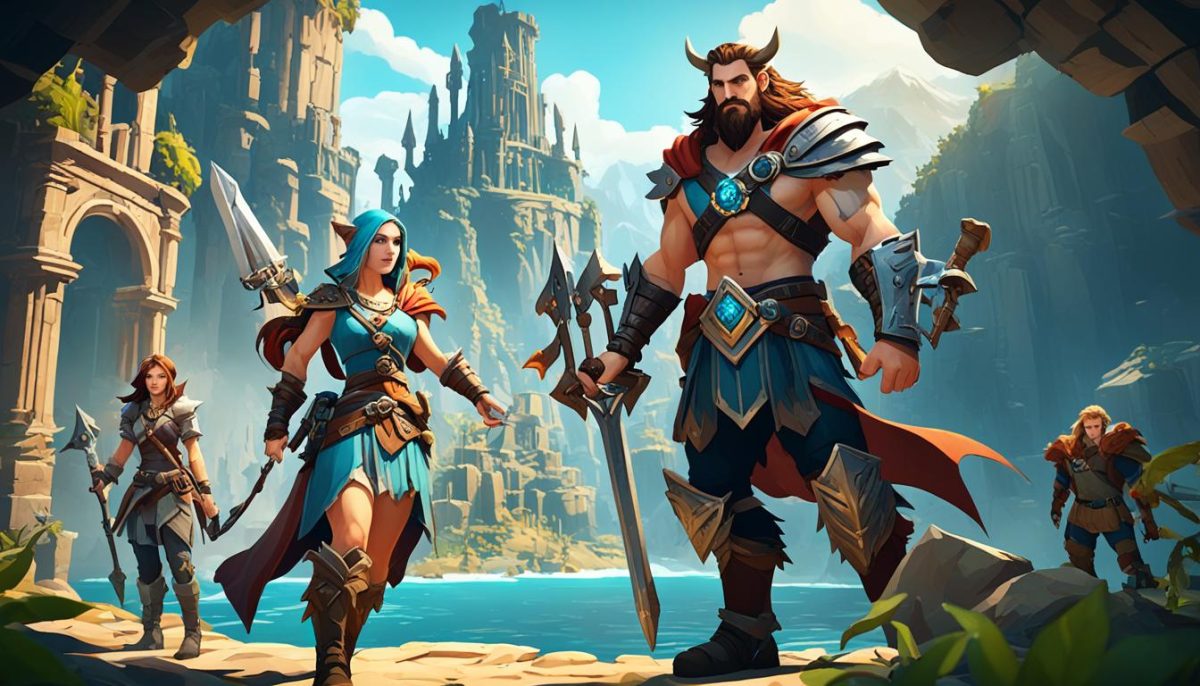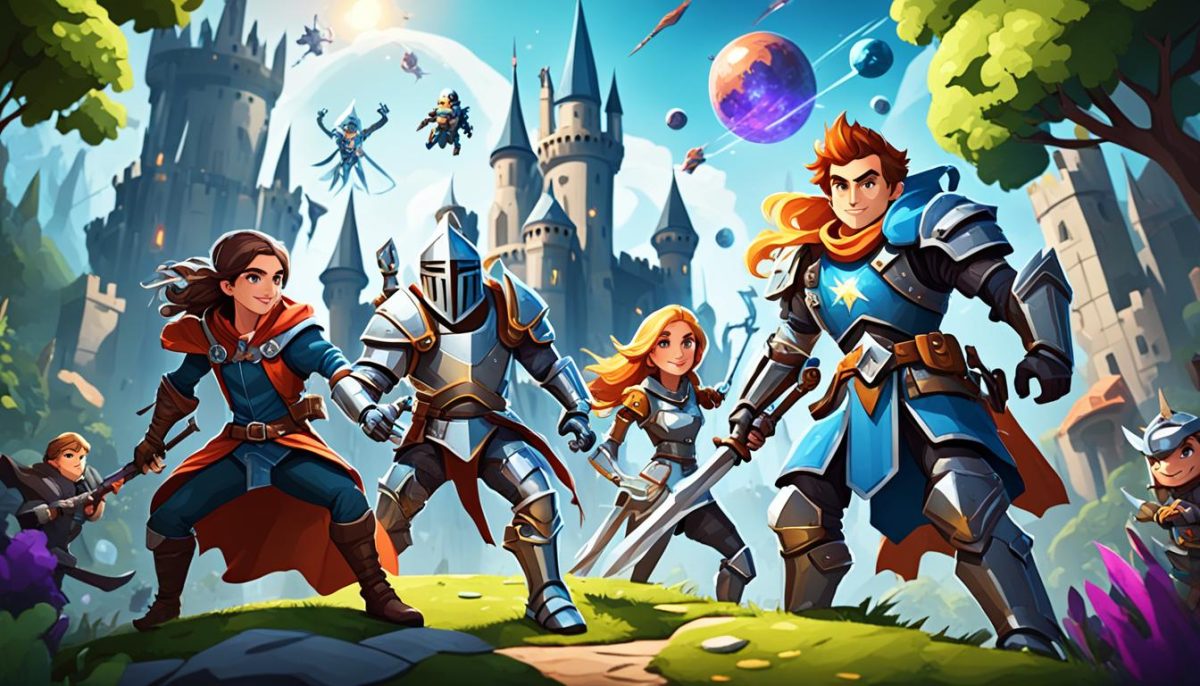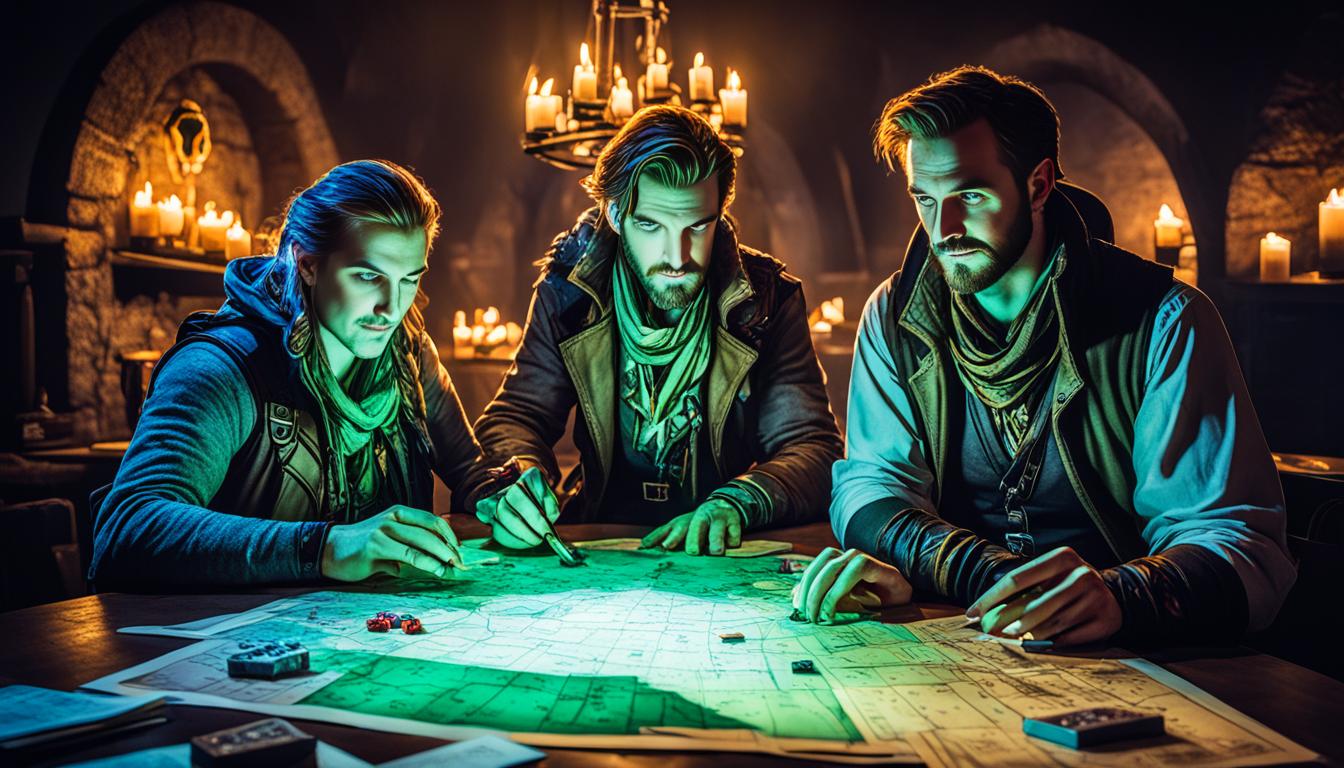In this section, we will explore the concept of RPG games, also known as role-playing games. We will delve into what makes RPG games unique and how they can enhance your gaming experience.
The Elements of RPG Games
In the world of gaming, RPG games stand out for their unique blend of immersive storytelling and interactive gameplay. These games offer players the opportunity to become fully immersed in a virtual world where they can shape their own destiny. In this section, we will explore the key elements that define RPG games and make them a favorite among gamers worldwide.
Character Development
One of the core elements of RPG games is character development. Players have the ability to create and customize their own unique characters, choosing their appearance, abilities, and skills. As the game progresses, characters evolve and grow, acquiring new abilities and unlocking potential. This character progression adds depth to the gaming experience, allowing players to become emotionally invested in their virtual alter ego.
Immersive Storytelling
RPG games are known for their rich and immersive narratives. Unlike other genres, RPG games prioritize storytelling, delivering captivating plots, complex characters, and moral dilemmas. The interactive nature of these games allows players to actively participate in the story, shaping its outcome through their decisions and actions. This level of engagement creates a sense of investment and attachment to the game world, making the experience truly unforgettable.
“The allure of RPG games lies in their ability to transport players into a world where they can become the hero of their own story.”
Decision-Making
In RPG games, decision-making plays a crucial role. Players are often faced with choices that impact the game’s narrative, the relationships between characters, and the overall outcome of the story. These choices require thoughtful consideration and strategic thinking, adding an extra layer of challenge and complexity to the gameplay. Whether it’s deciding the fate of a troubled kingdom or choosing between loyalty and betrayal, decision-making in RPG games brings a sense of agency and consequences to the player’s actions.
To truly understand the appeal of RPG games, one must experience the magic firsthand. Whether you’re drawn to the character development, the immersive storytelling, or the thrill of decision-making, RPG games offer an unparalleled gaming experience that keeps players coming back for more.

| Key Elements of RPG Games | Features |
|---|---|
| Character Development | Customize and level up your character to unlock new abilities and skills. |
| Immersive Storytelling | Engage in captivating narratives, complex characters, and morally challenging dilemmas. |
| Decision-Making | Your choices shape the game world, the relationships between characters, and the overall outcome of the story. |
Different Types of RPG Games
If you’re a fan of RPG games, you’ll know that there is a wide variety to choose from. Whether you prefer exploring a fantasy world or engaging in fast-paced combat, there’s an RPG game out there that caters to your preferences. In this section, we will explore the different types of RPG games, including genre-specific RPGs, action RPGs, and turn-based RPGs.
Genre-Specific RPGs
Genre-specific RPGs offer players the opportunity to immerse themselves in specific settings and themes. From epic fantasy worlds filled with magic and mythical creatures to post-apocalyptic landscapes where survival is key, these RPGs provide a rich and immersive experience. Some popular examples of genre-specific RPGs include “The Elder Scrolls V: Skyrim,” set in a vast fantasy realm, and “Fallout 4,” which takes place in a post-nuclear wasteland.
Action RPGs
Action RPGs combine the excitement of fast-paced combat with role-playing elements. In these games, players can expect intense battles, dynamic combat systems, and a focus on character progression. Action RPGs often feature real-time combat where reflexes and quick thinking are essential. Notable action RPGs include the critically acclaimed “Dark Souls” series and the popular “Diablo” franchise.
Turn-Based RPGs
On the other end of the spectrum, turn-based RPGs offer a more strategic and tactical gameplay experience. Players take turns making decisions and planning their actions, creating a slower-paced but highly engaging style of gameplay. Turn-based RPGs are known for their deep storytelling, character customization, and complex battle systems. Classic examples of turn-based RPGs include the iconic “Final Fantasy” series and the beloved “Pokémon” games.
No matter your preferred gaming experience, there is an RPG game to suit your tastes. Whether you enjoy exploring expansive worlds, engaging in thrilling combat, or carefully crafting your character’s story, genre-specific RPGs, action RPGs, and turn-based RPGs offer something for everyone. So grab your controller or keyboard and embark on an unforgettable adventure!

Tips for Getting Started with RPG Games
If you’re new to RPG games, you might feel a bit overwhelmed when you first dive in. Don’t worry, we’ve got you covered with some tips to help you get started on your RPG gaming journey.
One of the first steps in RPG games is character creation. Take your time to build a character that aligns with your playstyle and preferences. Consider their attributes, skills, and abilities to create a character that feels unique and suits your desired gameplay.
In RPG games, quests play a vital role in progressing through the story and gaining experience. As a beginner, it’s important to prioritize quests that align with your character’s abilities. This will allow you to level up and gain new skills, making future quests easier to tackle.
Lastly, don’t forget to immerse yourself in the world of the game. RPG games are known for their rich storytelling and expansive worlds. Take the time to explore, interact with NPCs (non-playable characters), and discover hidden treasures. Enjoy the journey and embrace the role-playing experience that RPG games offer.

